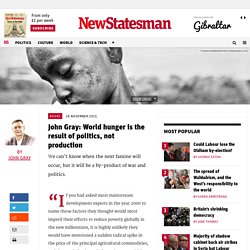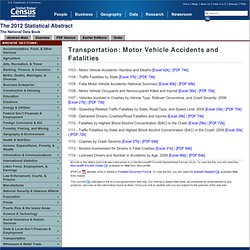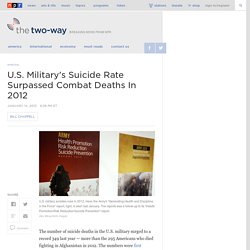

John Gray: World hunger is the result of politics, not production. “If you had asked most mainstream development experts in the year 2000 to name those factors they thought would most imperil their efforts to reduce poverty globally in the new millennium, it is highly unlikely they would have mentioned a sudden radical spike in the price of the principal agricultural commodities, and the staple foods made from them, on which the poor of the world literally depended for their survival.”

By 2006, as David Rieff goes on to show, prices of wheat, rice, corn and soybeans began to rise steeply on world markets. In Egypt, the price of bread doubled in a matter of months, and by some measures the food bill of the world’s poor rose by roughly 40 per cent. The result, in 30 of the world’s worst-affected countries, from Ethiopia to Uzbekistan, was a rash of bread riots. Food prices peaked in 2008, but rose again, almost as sharply, in 2010 and 2011, and the rising cost of bread was among the triggers of the Arab spring.
Why were the experts so unprepared? America's child death shame. Why anti-vaxers hate the NVICP (and just what is it, anyway?). –by Colin McRoberts « Violent metaphors. Orac is reporting that a planned Congressional hearing into the National Vaccine Injury Compensation Program has been canceled.

This is unambiguously good news; the hearing was probably a political favor being done for anti-vaccine cranks who despise the NVICP. Their hatred for the Program can be confusing, given how much better it is for their position than the alternative. The short version What are we talking about? The NVICP is a special court set up by Congress for people who claim they were injured by vaccines. Instead of having to sue the vaccine makers, which is an incredibly expensive, difficult, and time-consuming process, those plaintiffs get fast-tracked through a non-adversarial system. But despite those advantages, anti-vaxers are trying to pressure Congress to kill the program. Of course, this would be terrible for people who have actually suffered some side effect from vaccination—it’s rare, but it happens. How it works Benefits to plaintiffs.
Preventable Illnesses. The Pernicious Myth Of "If You Can Speak You Can Breathe" : ProtectAndServe. This is a phrase I heard Peter King say in the wake of Eric Garner's death and I feel it's something that everyone in our profession needs to be aware of.

The myth of "If you can speak you can breathe". I know I have heard it said twice by officers I work with, whom I both corrected. One of them actually argued with me about it until I was able to get Fire and Rescue to tell them they are wrong. The LAPD killed a man because they ignored his pleas and told him that if he could speak he could breathe. THIS IS FALSE!!!!!!!!! Hearing that phrase come out of someone's mouth always upsets me, because it can easily lead to a preventable death.So let's explore why this is false, because anyone who comes up against a situation like this needs to realize that You CAN speak if you cannot breathe!! This is true for multiple reasons, so let's explore them: The lungs have what are called "Volumes" and "Capacities". Motor Vehicle Accidents and Fatalities - The 2012 Statistical Abstract. 1103 - Motor Vehicle Accidents--Number and Deaths [Excel 42k] | [PDF 74k] 1104 - Traffic Fatalities by State [Excel 37k] | [PDF 74k] 1105 - Fatal Motor Vehicle Accidents--National Summary [Excel 46k] | [PDF 68k] 1106 - Motor Vehicle Occupants and Nonoccupants Killed and Injured [Excel 36k] | [PDF 70k] 1107 - Vehicles Involved in Crashes by Vehicle Type, Rollover Occurrence, and Crash Severity: 2009 [Excel 27k] | [PDF 70k] 1108 - Speeding-Related Traffic Fatalities by State, Road Type, and Speed Limit: 2009 [Excel 33k] | [PDF 70k]

Summary_en.pdf. <i>Global status report on violence prevention</i> U.S. Military's Suicide Rate Surpassed Combat Deaths In 2012. U.S. military suicides rose in 2012.

Here, the Army's "Generating Health and Discipline in the Force" report, right, is seen last January. The reports was a follow-up to its "Health Promotion/Risk Reduction/Suicide Prevention" report. Alex Wong/Getty Images hide caption itoggle caption Alex Wong/Getty Images U.S. military suicides rose in 2012. Alex Wong/Getty Images The number of suicide deaths in the U.S. military surged to a record 349 last year — more than the 295 Americans who died fighting in Afghanistan in 2012.
The new figures show that the number of military suicides rose from 2011, when 301 such deaths were reported. On All Things Considered, NPR's Pentagon correspondent Tom Bowman tells co-host Audie Cornish that the figures represent "active duty and reserve ... the largest portion were the active duty Army; 182 took their own lives in 2012. " Tom says the military's suicide problem is a complex one. As Tom notes, Sen.